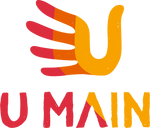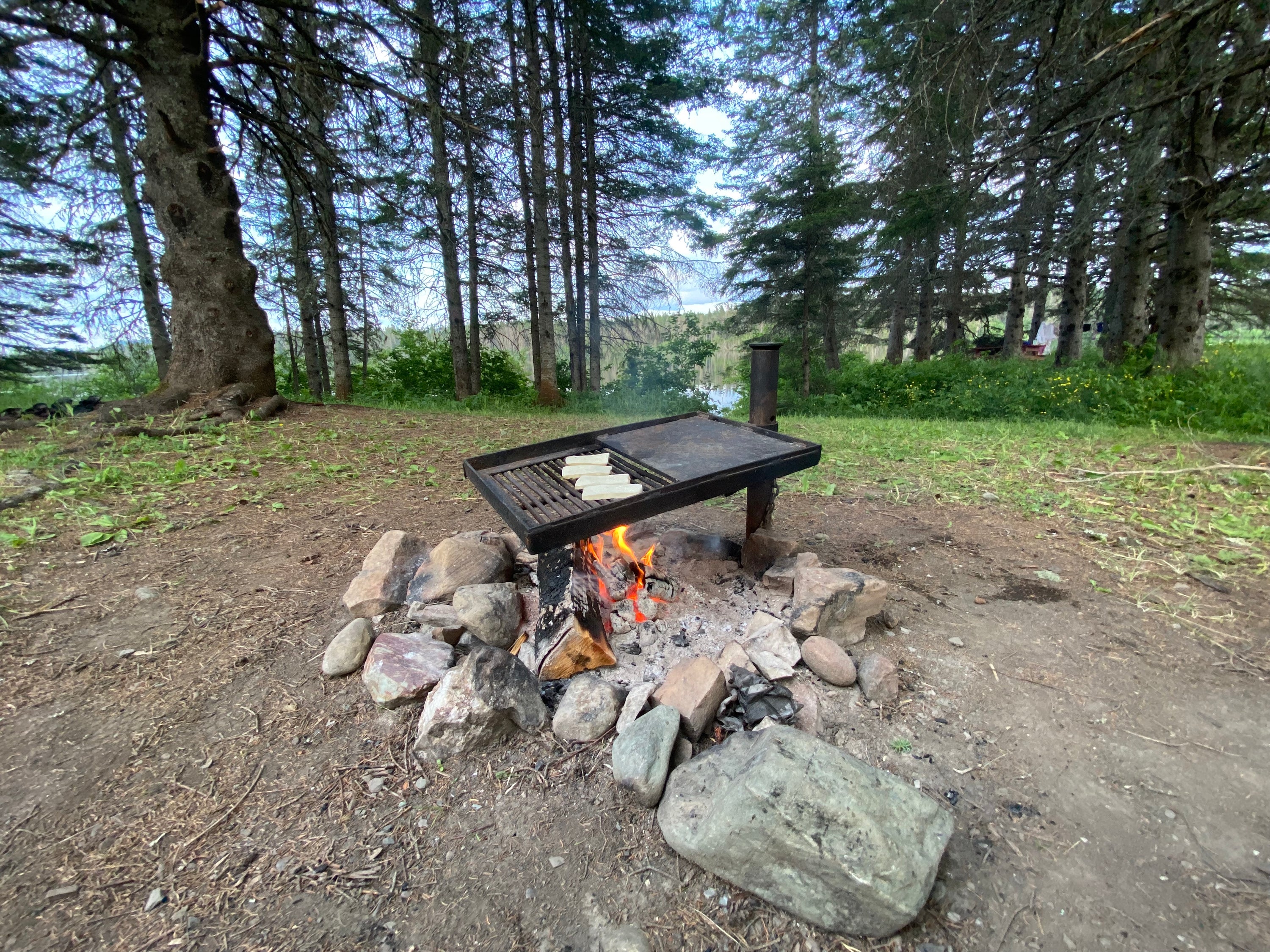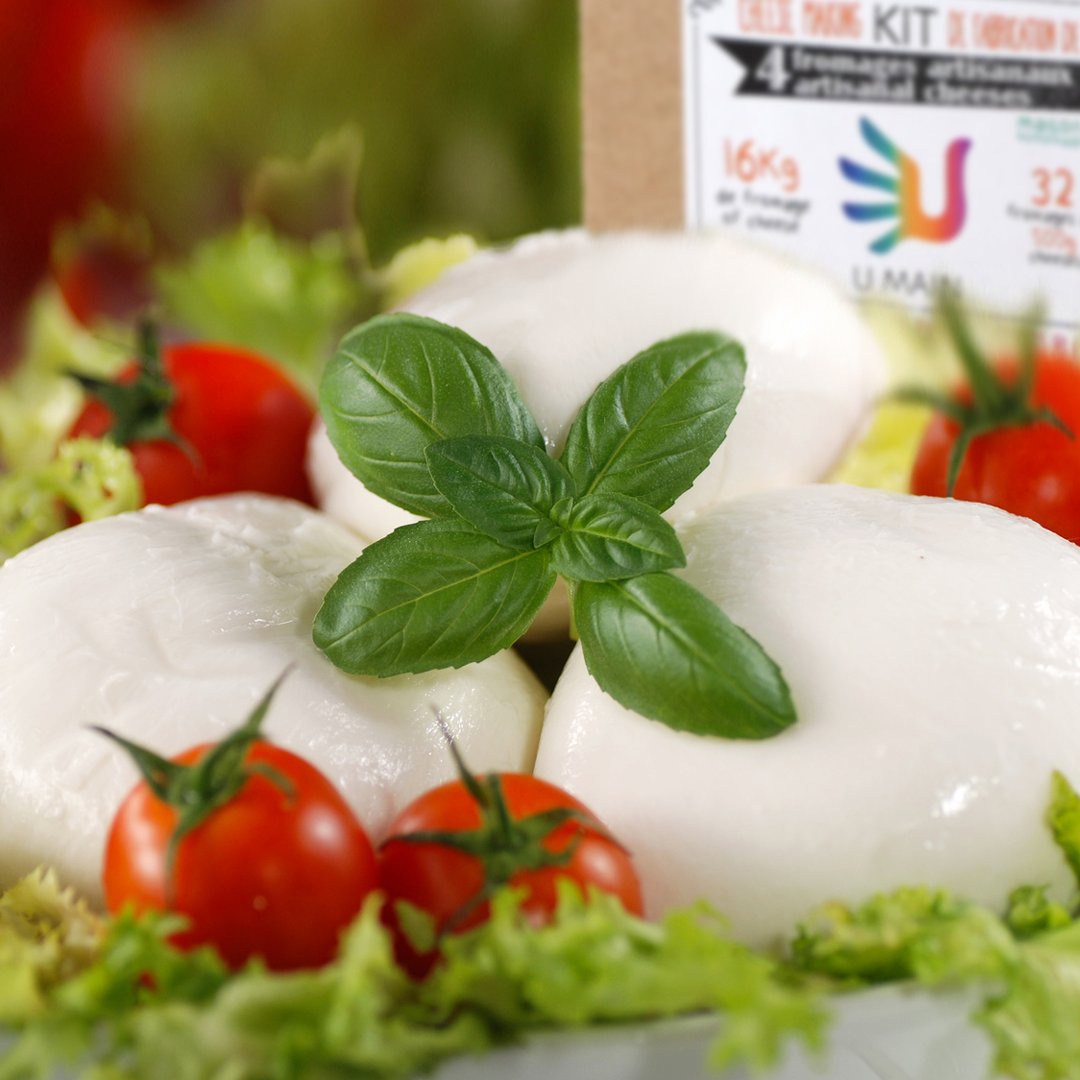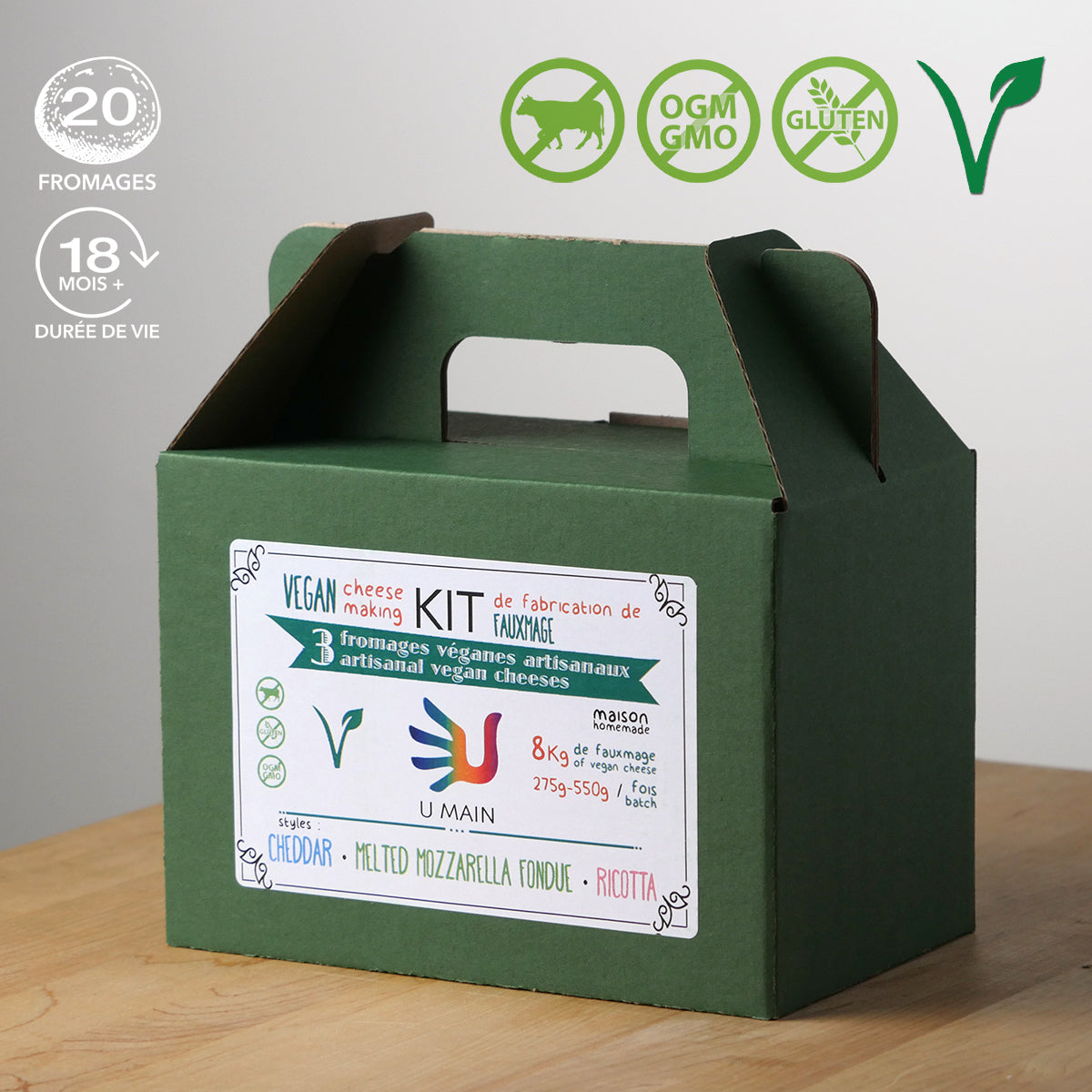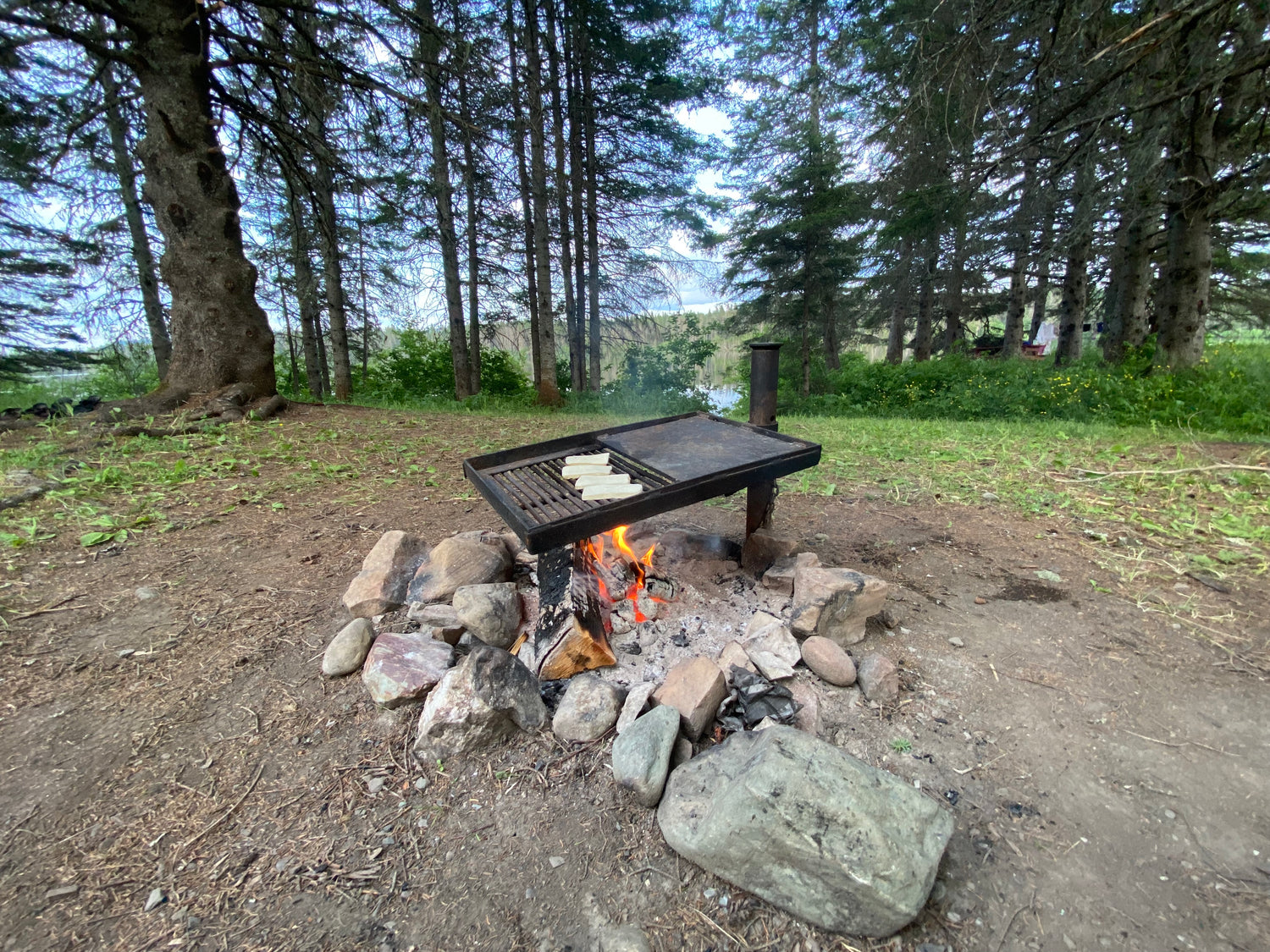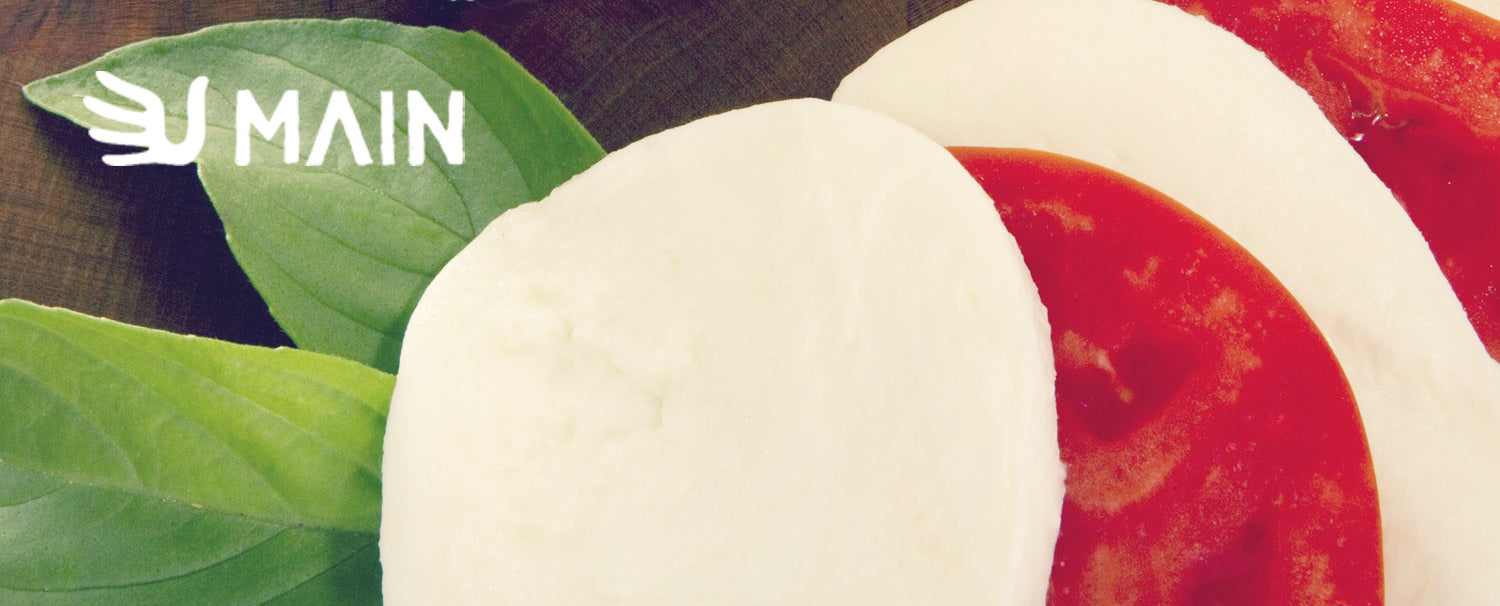Summer in Quebec is the perfect time to enjoy nature!
It's also the best time to cook outside comfortably...
And what could be more "outdoorsy" than cooking while camping? It's one of our favorite summer activities. Not only do we love making our own cheese, but we also love camping and the outdoors!

That's us, Max and Pascale, the co-founders of Kits U MAIN!
While we eat breakfast, we chill with the local petit-suisse, we give him a nickname and we keep a close eye on him so he doesn't steal our bag of nuts, haha!

Tip #1: Equipment
Cooking your food:
A hot meal cooked outdoors is easier to prepare with a camping stove. It's not very expensive, and there's a good price range.
Most stoves run on gas, with different types of canisters and sizes depending on the space and portability you need. There are also stoves that run on small branches of wood. However, it's more complicated to operate them if the wood is damp.

It is possible to eat only cold meals, but when the weather is chilly, a good hot meal is comforting.
You can also build a fire and cook over the embers when there are no restrictions in the region. Here, we prefer this option for dinner. A grill or cast iron skillet is practical in this case.

